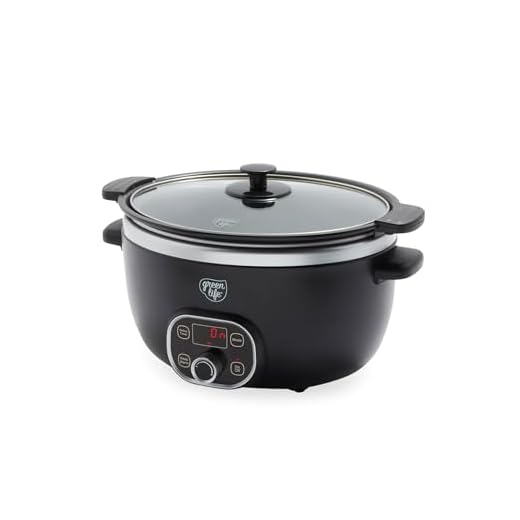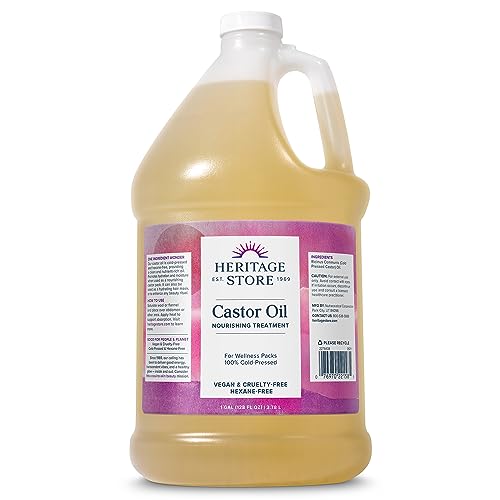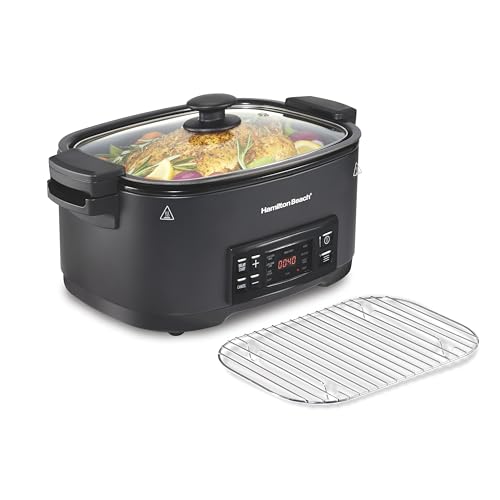



In today’s fast-paced world, where time seems to be in short supply, slow cookers have become a popular appliance in many kitchens. These convenient devices allow you to prepare meals with minimal effort and maximum flavor. But are slow cookers healthy?
The answer is a resounding yes. Slow cookers can actually be a great way to create nutritious and delicious meals. One of the main benefits of using a slow cooker is that it allows you to cook food at a low temperature for a long period of time. This gentle cooking method helps retain more nutrients in the food compared to other cooking methods, such as frying or boiling.
Slow cookers also require very little oil or fat, making them a healthier alternative to traditional cooking methods. The long, slow cooking process allows the flavors of the ingredients to meld together, resulting in rich and flavorful meals without the need for excessive amounts of salt or other additives.
Benefits of Using Slow Cookers
Slow cookers, also known as crock-pots, have gained popularity in recent years due to their convenience and ability to create delicious meals with minimal effort. Here are some of the benefits of using slow cookers:
1. Time-saving:
One of the greatest advantages of using a slow cooker is that it saves you time in the kitchen. With a slow cooker, you can simply toss in the ingredients in the morning, set the desired cooking time, and let it do its magic while you go about your day. This is especially useful for busy individuals who want to enjoy a home-cooked meal without spending hours in the kitchen.
2. Healthier meals:
Using a slow cooker can help you make healthier meals. As slow cookers require very little additional fat or oil, you can create flavorful dishes without adding unnecessary calories. Slow cooking also retains more nutrients compared to other cooking methods as the ingredients cook slowly at a low temperature, preserving their natural goodness.
Furthermore, slow cooking often involves simmering food for a long period of time, which helps to tenderize even the toughest cuts of meat. This means that you can enjoy tender and juicy meals without the need for excessive frying or grilling.
Incorporating more vegetables into your diet is also easier with a slow cooker. You can add a variety of vegetables to your slow cooker recipes, resulting in healthier and more balanced meals.
In conclusion, slow cookers offer a range of benefits, including time-saving convenience and the ability to create healthier meals. So why not give it a try and let the slow cooker do the work for you?
Nutritional Value of Slow-Cooked Meals
Slow-cooked meals not only offer convenience and a delicious taste, but they also provide a range of important nutrients that are beneficial for overall health. Here are some key nutritional benefits of slow-cooked meals:
| Nutrient | Benefit |
|---|---|
| Protein | Slow-cooked meals, such as stews or soups, often include protein-rich ingredients like meats, beans, and legumes. Protein is essential for building and repairing tissues, supporting the immune system, and maintaining muscle mass. |
| Fiber | Many slow-cooked meals contain high amounts of fiber-rich vegetables, whole grains, and legumes. Fiber promotes digestive health, helps control blood sugar levels, and aids in weight management. |
| Vitamins and Minerals | Slow-cooked meals retain more vitamins and minerals compared to other cooking methods due to the lower temperature and longer cooking time. These include essential nutrients like vitamin C, vitamin A, potassium, and iron. |
| Healthy Fats | Slow-cooked meals often incorporate healthy fats from ingredients like olive oil and avocados. These fats provide energy, help absorb fat-soluble vitamins, and contribute to heart health. |
In addition to these nutritional benefits, slow-cookers can also help reduce the need for added fats or salts since the long cooking time allows flavors to develop naturally. This makes slow-cooked meals a healthy and flavorful option for individuals looking to improve their overall diet.
Slow Cookers and Healthy Cooking Techniques
Slow cookers, also known as crock-pots, have gained popularity over the years for their convenience and ability to create delicious meals with minimal effort. But are slow cookers considered healthy cooking techniques? Let’s take a closer look.
One of the main benefits of using a slow cooker is that it allows you to cook with lower temperatures and for longer periods of time. This gentle cooking method helps to retain more nutrients in the food compared to other high-heat cooking methods like frying or grilling.
When you use a slow cooker, you also have more control over the ingredients you use. You can choose fresh and wholesome ingredients, such as lean meats, whole grains, and plenty of vegetables. This allows you to create well-balanced and nutritious meals that are packed with vitamins, minerals, and fiber.
Another advantage of slow cookers is that they require less oil or fat compared to traditional cooking methods. The slow cooking process allows flavors to develop and intensify without the need for additional fats or oils, making your meals healthier overall.
Slow cookers also reduce the need for added sugars and salts. The long cooking time and low temperatures enhance the natural flavors of the ingredients, eliminating the need for excessive seasoning or additional sweeteners. This makes slow-cooked meals a great option for those trying to reduce their intake of added sugars and sodium.
Additionally, using a slow cooker can help you make healthier food choices overall. It allows you to plan and prepare meals in advance, which can prevent reliance on unhealthy takeout options or processed convenience foods. By having control over the ingredients and portion sizes, you can ensure that your meals align with your dietary goals.
In conclusion, slow cookers are not only convenient but also a healthy cooking technique. They help retain nutrients, require less added fats and sugars, and promote the use of fresh and wholesome ingredients. So go ahead and make use of your slow cooker to enjoy delicious and nutritious meals!
Tips for Healthy Slow Cooker Recipes
Slow cookers are a convenient and easy way to prepare healthy meals. Here are some tips for creating delicious and nutritious recipes using a slow cooker:
Choose lean meats
When selecting meat for your slow cooker recipes, opt for lean cuts such as chicken breast, turkey breast, or lean beef. Trim any visible fat before cooking to reduce saturated fat content.
Add plenty of vegetables
Vegetables are an essential component of a healthy diet, and the slow cooker is an excellent way to incorporate them into your meals. Load up your slow cooker with a variety of veggies such as carrots, bell peppers, onions, and zucchini. They will add flavor, color, and vital nutrients to your dishes.
To prevent vegetables from overcooking and becoming mushy, place them at the bottom of the slow cooker, closest to the heat source.
Use herbs and spices
Add flavor to your slow cooker recipes without adding excessive salt or fat by using herbs and spices. Experiment with different combinations to create unique flavors. Some popular options include garlic, oregano, basil, cumin, and thyme.
Avoid using canned soups
Many slow cooker recipes call for canned soups to add flavor and moisture. However, these soups can be high in sodium and contain artificial additives. Instead, try making your own sauces and broths using fresh ingredients whenever possible.
Monitor cooking times
One of the advantages of using a slow cooker is the ability to set it and forget it. However, it’s essential to monitor the cooking time to ensure that food is cooked thoroughly and not overcooked. Overcooked meats and vegetables can lose their nutritional value and become less appetizing.
To determine the appropriate cooking time for a recipe, refer to the manufacturer’s instructions for your specific slow cooker model and the individual recipe guidelines. As a general rule, most recipes cook on low heat for 6 to 8 hours or high heat for 3 to 4 hours.
Skim off excess fat
After cooking, you may notice a layer of fat on top of your slow cooker creations. To reduce the fat content of your dish, use a ladle or spoon to skim off the excess fat before serving. Alternatively, you can refrigerate the dish, and the fat will solidify on top, making it easier to remove.
By following these tips, you can create delicious and nutritious meals using your slow cooker, making it a valuable tool for your healthy eating journey.
| Tip | Description |
|---|---|
| Choose lean meats | Opt for cuts like chicken breast or lean beef to reduce saturated fat. |
| Add plenty of vegetables | Load up your slow cooker with a variety of colorful veggies for added nutrients. |
| Use herbs and spices | Experiment with different herbs and spices to enhance flavor without adding excess salt or fat. |
| Avoid using canned soups | Make your own sauces and broths using fresh ingredients to avoid excessive sodium and additives. |
| Monitor cooking times | Check the cooking time to avoid overcooking and losing nutritional value. |
| Skim off excess fat | Remove excess fat from the dish before serving for a healthier meal. |
FAQ
Are slow cookers a healthy way to cook food?
Yes, slow cookers can be a healthy way to cook food. They use a low temperature over a long period of time, which helps to retain the nutrients in the food. Additionally, slow cookers allow you to cook with less oil and fat, as the long cooking time helps to break down and tenderize meats and vegetables.
Can slow cookers help with weight loss?
Slow cookers can be a helpful tool for weight loss. They allow you to cook meals in advance and portion them out, making it easier to control your portion sizes and calorie intake. Additionally, slow cookers can be used to make healthy, low-calorie meals by using lean meats, plenty of vegetables, and minimal added fats or sugars.
Is it safe to leave a slow cooker unattended?
Yes, it is generally safe to leave a slow cooker unattended. Slow cookers are designed to be left on for long periods of time, and most models have built-in safety features such as automatic shut-off or timers that switch to a “keep warm” setting after the cooking time is complete. However, it is always a good idea to follow the manufacturer’s instructions and use common sense when leaving any appliance unattended.
Can slow cookers help save time in the kitchen?
Yes, slow cookers can save you time in the kitchen. By allowing you to prepare ingredients in advance and cook them slowly over several hours, you can spend less time actively cooking and more time doing other things. Slow cookers are also great for making large batches of food, so you can easily have leftovers for several meals, which can save you time on cooking multiple times during the week.








